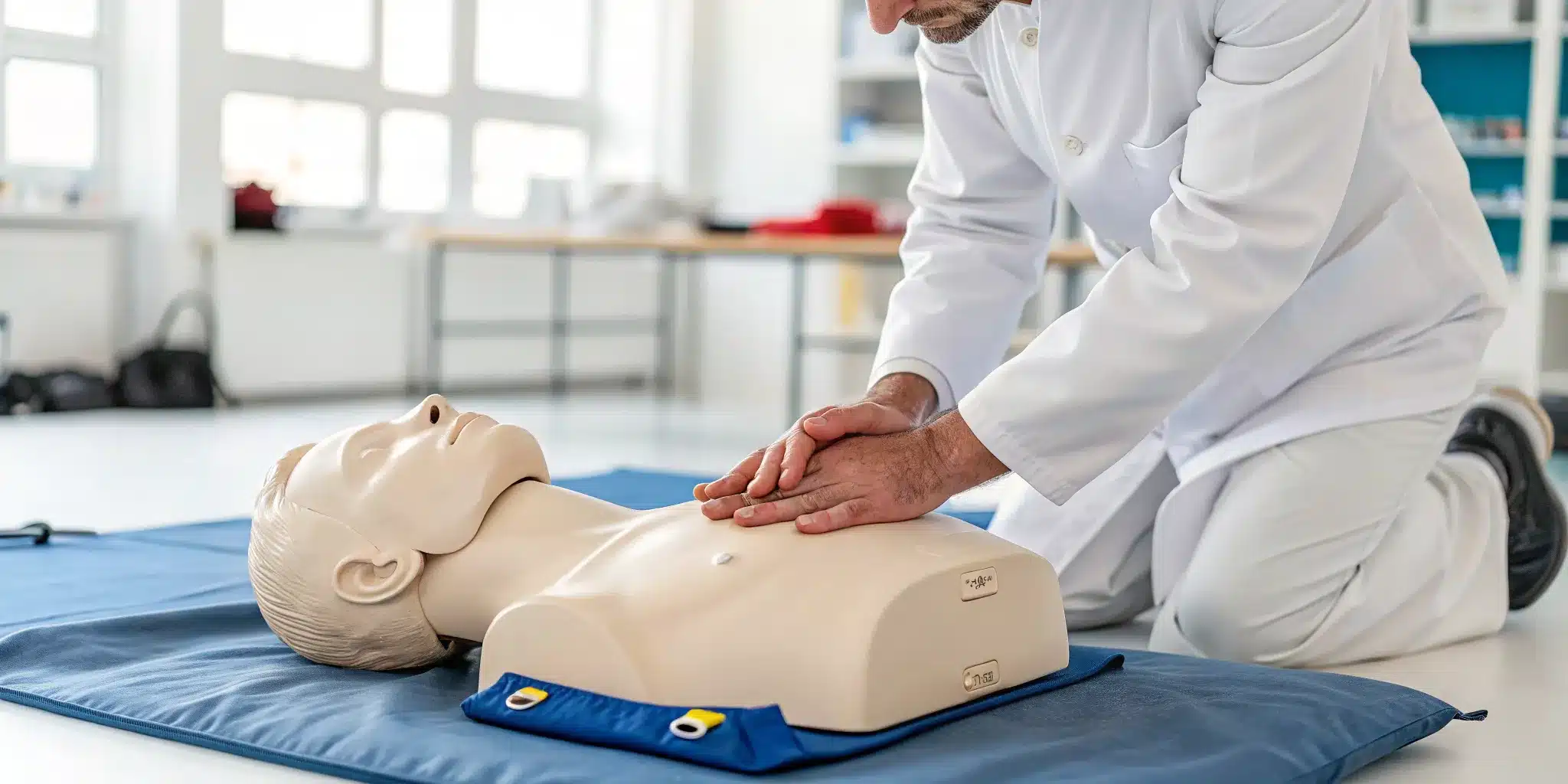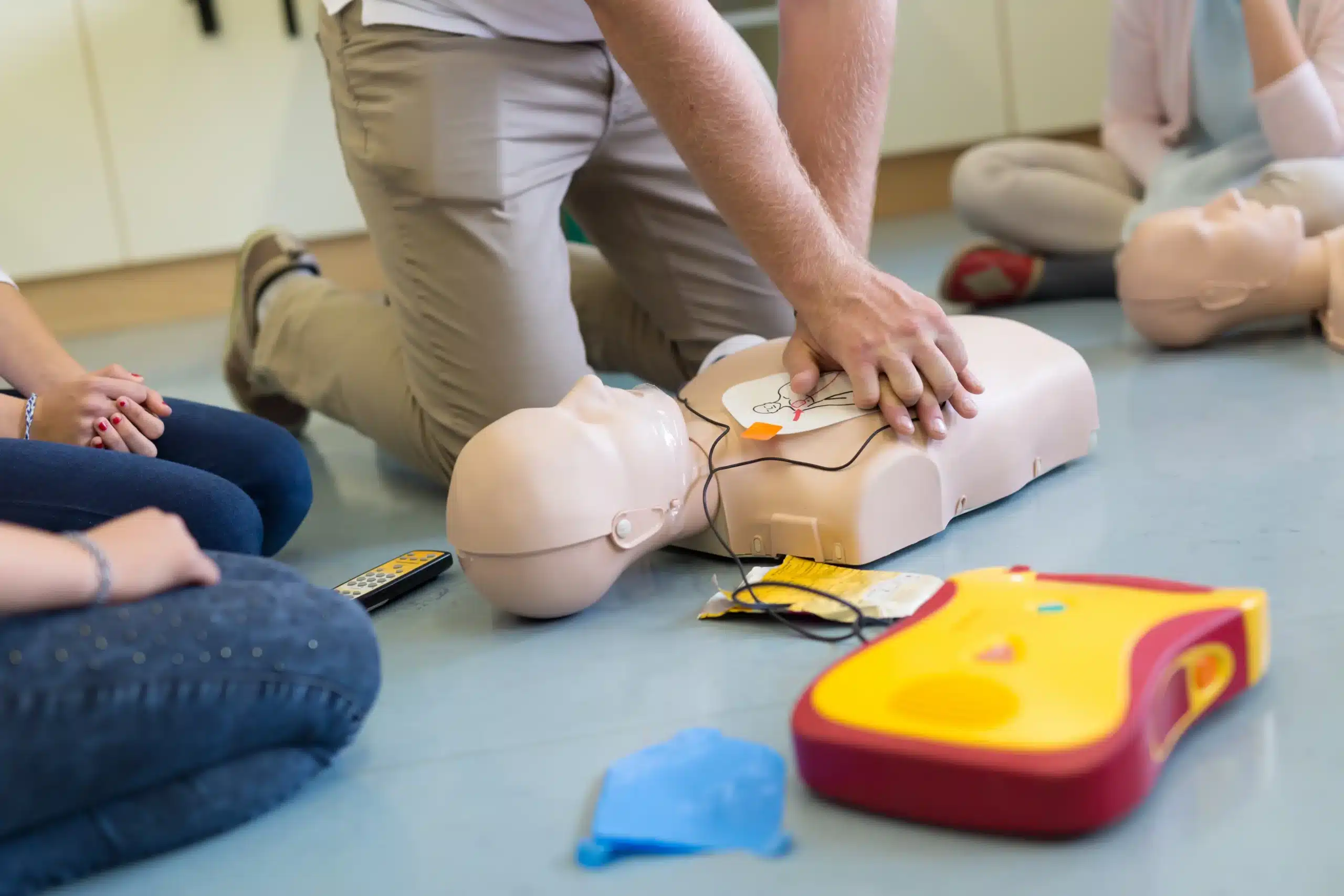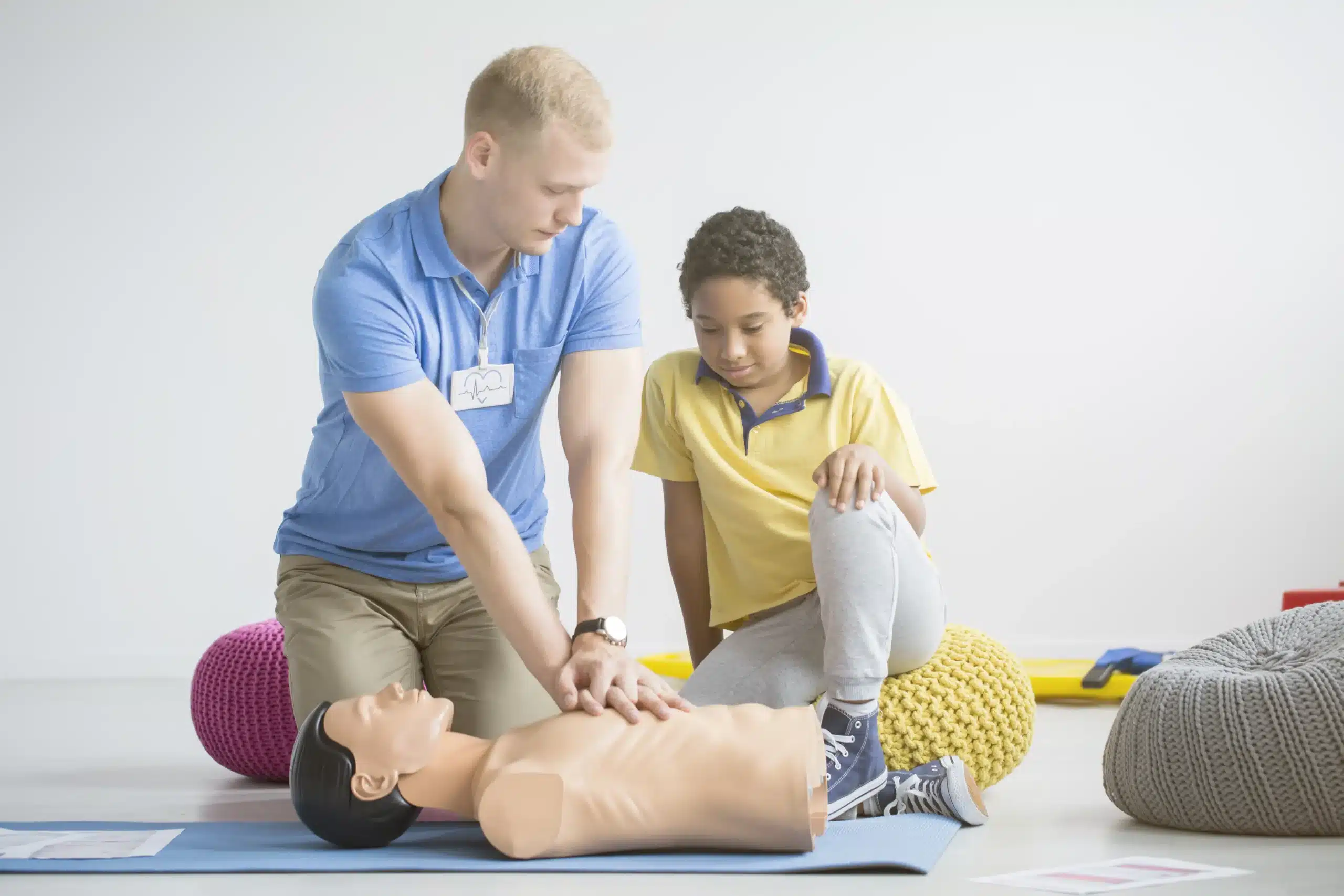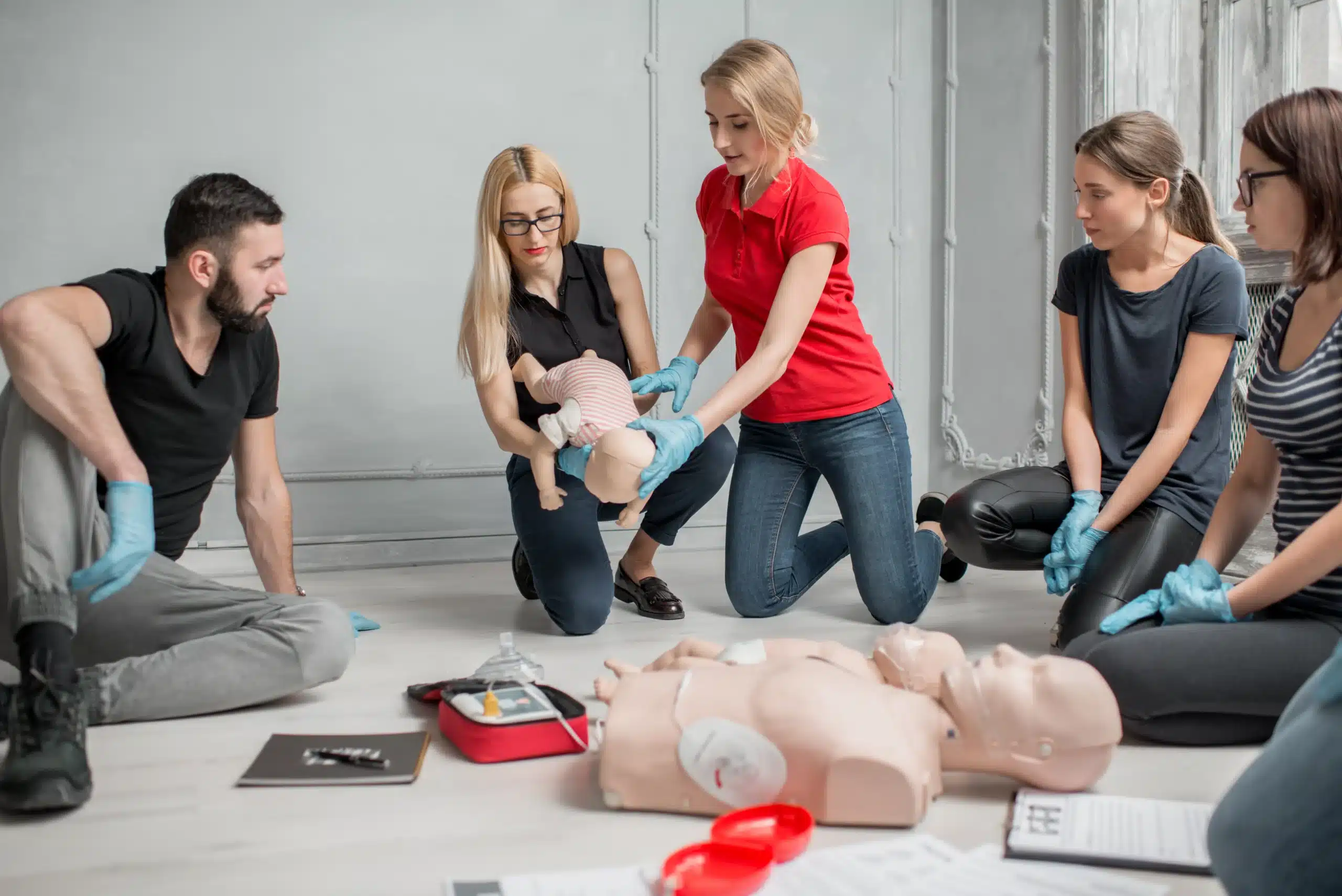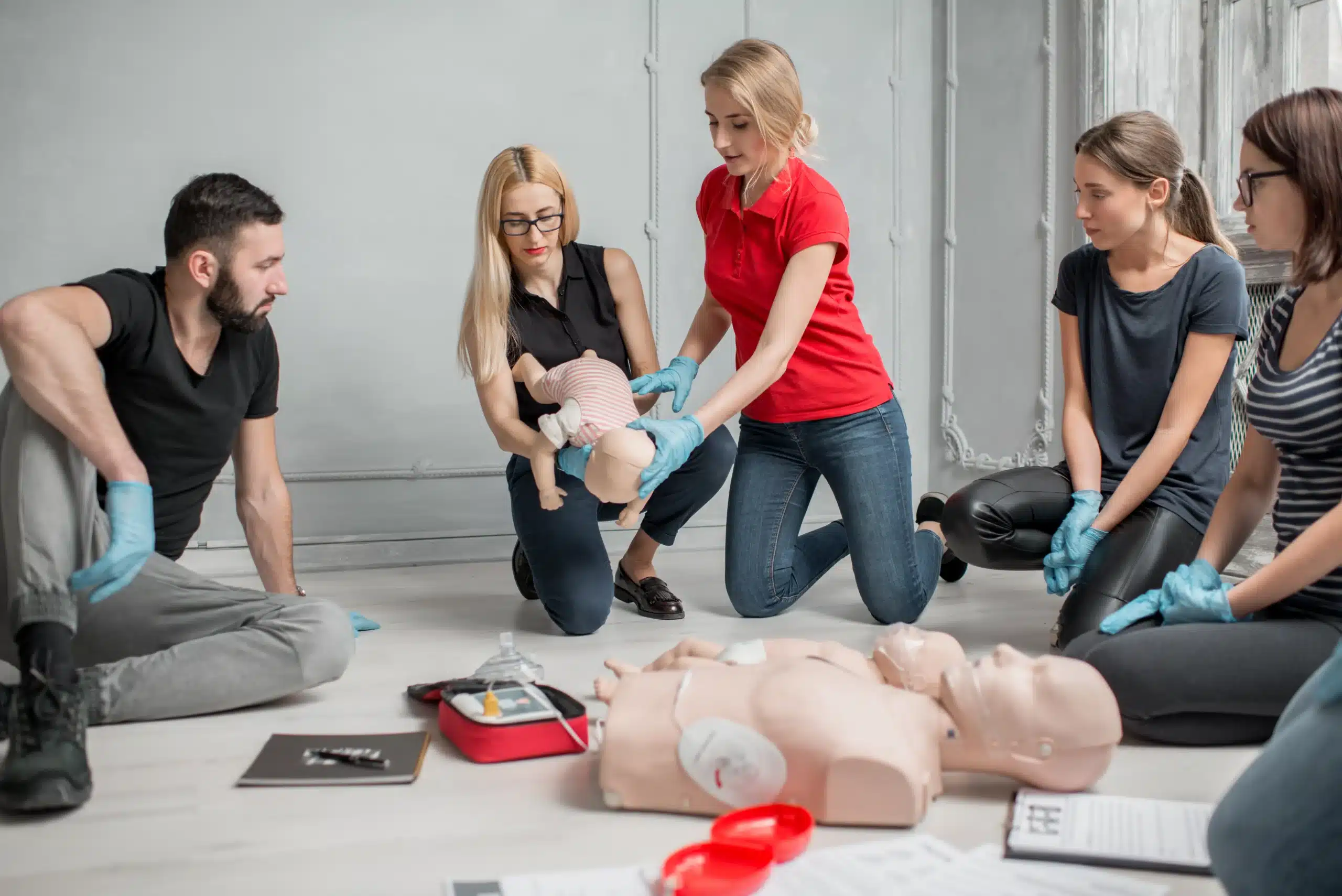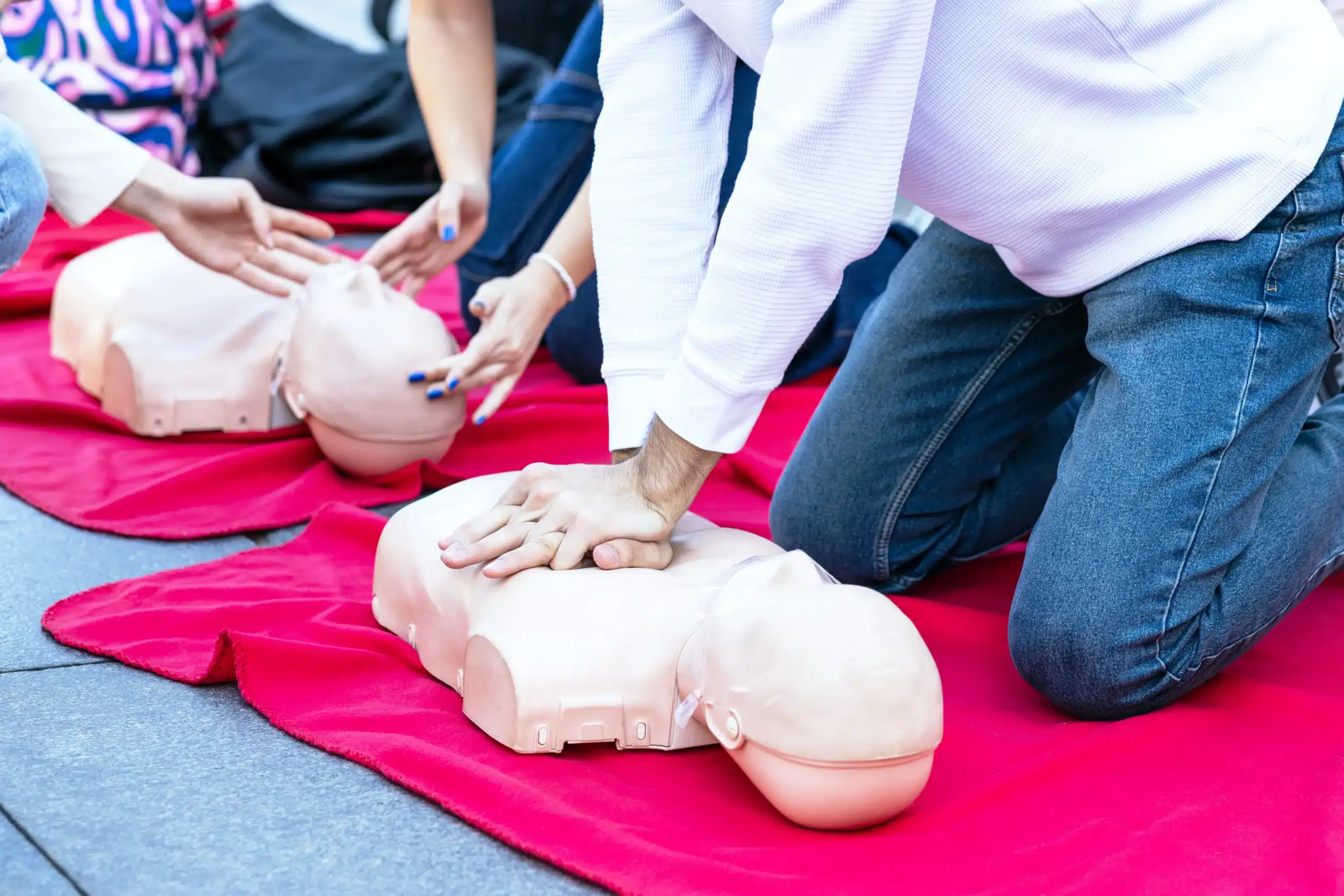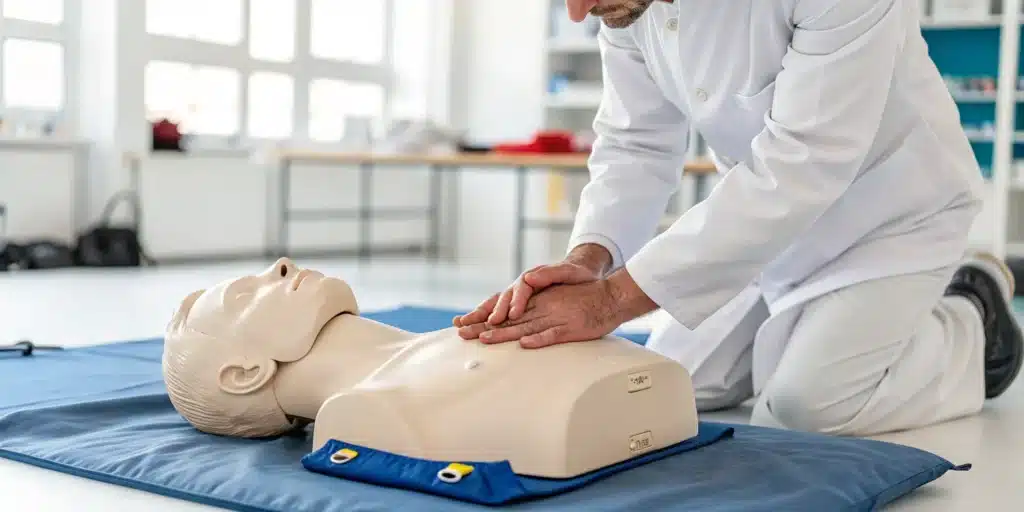Empowering yourself with life-saving skills is one of the most impactful things you can do, and CPR certification is at the top of that list. This guide is your go-to resource for finding CPR classes in Richmond. We’ll explore the various training options available, from basic CPR and AED use to advanced life support certifications. We’ll also discuss the importance of choosing an accredited training provider, like Safety Training Seminars, known for its high-quality instruction and convenient San Pablo location, easily accessible to those in Richmond, Berkeley, and Oakland. Ready to take the first step? Let’s explore the world of CPR training in Richmond.
Key Takeaways
- Find the Right CPR Class for You: Whether you’re a healthcare professional, childcare provider, or simply want to be prepared for emergencies, various CPR and First Aid courses are available throughout Richmond and the surrounding areas, including convenient options in San Pablo.
- Choose a Course that Meets Your Needs: From basic CPR and AED training to advanced certifications like BLS, ACLS, and PALS, consider factors such as course length, cost, instructor qualifications, and the type of certification you require.
- Stay Prepared: Registering for a class is easy, with flexible scheduling options available. Remember that continued practice is essential for maintaining your CPR skills, so take advantage of refresher materials and resources.
What is CPR? Richmond Class Options
CPR, or cardiopulmonary resuscitation, is a life-saving technique used when someone’s breathing or heartbeat has stopped. It combines chest compressions and rescue breaths to keep blood and oxygen flowing to the brain and other vital organs until professional help arrives. Knowing CPR can empower you to make a real difference in an emergency. We offer a variety of CPR and First-aid courses in San Pablo convenient to Richmond, Berkeley, and Oakland.
If you’re exploring options specifically within Richmond, you have several choices. The American Red Cross offers various CPR classes, including in-person and blended learning (online coursework plus hands-on practice). These courses are designed for a wide range of people. You’ll receive a certification valid for two years, helping you keep your skills current. Another option is CPR Certification Richmond, which provides American Heart Association (AHA) certified CPR and First Aid classes. These are hands-on, in-person classes, and you’ll receive your certification card the same day if you successfully complete the course. They offer CPR-only classes and a combined CPR/First Aid option, so you can find the right fit.
CPR Training: What’s Available?
Finding the right CPR class depends on your specific needs. Richmond offers various courses, from basic life support to specialized pediatric training. Let’s break down the options:
BLS for Healthcare Providers
Healthcare professionals, such as doctors, nurses, and EMTs, need a strong foundation in Basic Life Support (BLS). These BLS courses cover core life-saving techniques and adhere to the latest American Heart Association (AHA) guidelines. Expect hands-on training, skills checks, and an exam to ensure you’re proficient in providing high-quality care. Many courses offer the convenience of in-person training in over 60 cities across Northern California. Our dedicated customer service team is available daily to answer any questions.
Heartsaver CPR AED
If you’re not a healthcare provider but still want to learn CPR and how to use an AED, a Heartsaver CPR AED course might be a good fit. Check with your local providers like the American Red Cross to find a class near you. These classes are designed for the general public and cover essential skills for responding to emergencies involving adults, children, and infants. Safety Training Seminars offers a convenient location in San Pablo, easily accessible for those in Richmond, Berkeley, and Oakland.
First Aid/CPR Combo Courses
Want to be extra prepared? Consider a combined First Aid/CPR course. These programs teach you how to respond to various medical situations, from treating minor injuries to performing CPR. You’ll gain confidence in handling both immediate first aid needs and life-threatening emergencies. CPR and First Aid courses are available in San Pablo. Check our low price guarantee.
Pediatric First Aid/CPR
For parents, caregivers, teachers, or anyone who regularly works with children, a specialized Pediatric First Aid/CPR course is invaluable. These courses focus on the specific needs of infants and children, providing tailored guidance for responding to emergencies in this age group. You’ll learn how to address common childhood injuries and illnesses, as well as how to perform age-appropriate CPR. For those working in childcare, the EMSA Child Care Health & Safety course covers essential first aid and CPR training.
CPR Class Costs & Value
Understanding CPR class costs upfront helps you budget and choose the right course. While pricing varies, knowing what to expect and where to find potential savings makes the process easier. We’ll break down the typical costs associated with CPR training, including course fees, additional expenses, and available discounts.
Course Costs
CPR class prices depend on the type of certification you need. A basic BLS CPR class is usually the most affordable, often aligning with our low-price guarantee. More advanced courses, like ACLS or PALS, typically cost more because of the specialized training involved. Combination courses, such as CPR and First Aid, often offer a bundled price that’s less than taking each course separately. Check with specific training providers like Safety Training Seminars for their current pricing. You can find our course catalog and schedule for CPR and First-aid courses in San Pablo.
Extra Fees (Materials/Certification)
Some CPR classes may have extra fees beyond the course tuition. These might include costs for student manuals, pocket masks, or other training materials. Ask your chosen provider about any required materials and their associated costs. Also, inquire about certification fees. While some providers include the certification card cost in the course fee, others may charge separately. At Safety Training Seminars, your two-year certification is included, so there are no surprises. We believe in transparent pricing.
Discounts & Group Rates
If you’re training a group of employees or community members, ask about group discounts. Many CPR training centers, including Safety Training Seminars, offer reduced rates for group bookings. This can be a cost-effective way to ensure everyone receives the necessary training. Contact us to discuss group rates and customized training options. We’re happy to work with organizations of all sizes in Richmond, Berkeley, and Oakland. We also offer an EMSA Child Care Health & Safety course, which you can learn more about here.
Class Length & Certification
CPR class length varies depending on the type of course you choose. A basic CPR course typically lasts a few hours, while more comprehensive training, including first aid and AED instruction, can take longer. For example, our CPR and First Aid courses in San Pablo combine these essential lifesaving skills. Advanced CPR courses designed for healthcare professionals, like our American Heart Association BLS course, require a more significant time commitment.
How Long are Classes?
Standard CPR instruction usually takes between two and four hours to complete. Adding first aid and AED training to your CPR certification typically extends the class time to between four and eight hours. Advanced courses, such as ACLS and PALS, designed for medical professionals, can range from eight to sixteen hours. We understand busy schedules, so we offer various class times to fit your needs. Check our course calendar for available dates and times.
Certification: How Long is it Good For?
Upon successful completion of your chosen course, you’ll receive an American Heart Association certification card, valid for two years. This ensures your skills are current and meet the latest guidelines. We offer convenient recertification courses to help you maintain your credentials. Our RQI program is particularly helpful for healthcare professionals looking for efficient recertification.
Same-Day Certification
We know how important it is to get certified quickly. That’s why we issue same-day certification cards (e-cards) after you successfully complete the course. This allows you to immediately put your new skills to use. Contact us to learn more about our certification process and our low price guarantee.
Instructor Qualifications
When choosing a CPR class, the instructor’s qualifications are just as important as the course content. You want to learn from someone knowledgeable and who can teach effectively. Here’s what to look for:
AHA Certification
The gold standard for CPR training is certification from the American Heart Association (AHA). Ensure your instructor and the program are AHA-certified. This signifies the curriculum adheres to the latest scientific guidelines and best practices, giving you confidence that you’re receiving high-quality training recognized by healthcare providers and employers. Safety Training Seminars offers AHA-certified courses, ensuring comprehensive and current training.
Instructor Expertise
Look for instructors with real-world experience beyond certification. Experienced instructors offer practical insights and answer your questions thoroughly. They can also clearly demonstrate techniques and correct your form, crucial for performing CPR correctly in an emergency. Check if the training organization provides instructor bios or testimonials to understand their background and expertise. Our San Pablo CPR and First Aid courses are led by experienced professionals dedicated to providing high-quality instruction.
Ongoing Training
CPR techniques and guidelines evolve, so instructors must stay current. Ask about the training organization’s commitment to continuing education for their instructors. Do they participate in regular refresher courses? This ensures they teach the most current methods and address new developments in the field. This commitment is especially important for specialized courses like our EMSA Child Care Health & Safety program, which requires in-depth pediatric care knowledge. Contact us to learn more about our instructors and their qualifications.
Find the Right CPR Class
Choosing the right CPR class depends on your specific needs. Are you a healthcare professional? Do you need CPR training for your workplace or simply for personal knowledge? Do you work with children? Let’s break down the different types of CPR classes available in Richmond and who they’re best suited for.
Healthcare Requirements
Healthcare providers, including doctors, nurses, paramedics, and other medical professionals, typically require BLS certification from the American Heart Association (AHA). This course covers core CPR skills for adults, children, and infants, along with training on using an AED and relieving choking. AHA-certified courses, like those offered by Safety Training Seminars, meet these requirements with hands-on training, skills checks, and exams. These certifications are usually valid for two years. Check with your employer or licensing board to confirm the specific CPR certification you need.
Public & Workplace Safety
For individuals seeking CPR training for general workplace safety or personal knowledge, a Heartsaver CPR AED course might be a good fit. These courses, often offered by organizations like the American Red Cross, provide essential CPR and AED skills for adults, children, and infants. While not always required, CPR training can be a valuable asset in various workplaces and can empower you to respond effectively in emergencies.
Childcare Provider Training
Those working in childcare or education often need specialized training. Look for courses that combine CPR with pediatric first aid, covering topics like injuries, illnesses, and emergencies common in children. The American Red Cross offers training tailored for childcare providers, including modules on preventing childhood injuries and creating safer environments. These courses often align with licensing requirements for childcare centers and schools. Be sure to check with your state’s regulations to ensure you choose a course that meets those specific requirements. Safety Training Seminars also offers an EMSA Child Care Health & Safety course that may meet your needs. Contact us to learn more.
Class Schedules & Flexibility
Finding a CPR class that fits your busy schedule shouldn’t be a struggle. Thankfully, there are several options available to accommodate various needs and preferences. Let’s explore some of the ways you can find a class that works for you.
Weekday/Weekend Classes
Many CPR training centers understand that people have commitments during the typical work week. To make scheduling easier, they offer classes on both weekdays and weekends. This flexibility allows you to choose a time that aligns with your existing schedule, whether you’re a working professional, a student, or a stay-at-home parent. Safety Training Seminars offers a variety of CPR and First-aid courses in San Pablo, serving Richmond, Berkeley, and Oakland, CA. Check their website for a schedule that works for you.
Online/In-Person Options
These days, you have more choices than ever when it comes to learning CPR. If you value face-to-face instruction in a traditional classroom setting, in-person classes are a great option. However, if you prefer learning at your own pace or have difficulty attending a physical class, online learning might be a better fit. Some providers offer a fully online experience, while others use a blended learning approach.
Blended Learning
Blended learning combines online coursework with in-person skills sessions. You’ll complete the coursework online at your own speed and on your own time. Then, you’ll attend a shorter, in-person session to practice the techniques you learned and receive feedback from a certified instructor. This approach offers a convenient way to gain both the knowledge and hands-on experience necessary for effective CPR. The American Red Cross is one organization that offers blended learning CPR courses. See if providers in your area offer this option as well.
Advanced CPR Class Features
Looking for a CPR class that goes above and beyond the basics? Here’s what sets some courses apart:
Real-Time Feedback
Many modern CPR courses use sophisticated training mannequins equipped with sensors and software. These provide real-time feedback on your technique, including the depth and rate of your chest compressions. This instant feedback helps you correct mistakes as you learn and develop proper CPR skills. Studies show that students who train with these advanced mannequins are more engaged and achieve better CPR quality. This personalized instruction is invaluable for building confidence and proficiency.
Emergency Scenario Simulations
Some CPR courses incorporate realistic emergency simulations to prepare you for the stress and complexities of real-life situations. These simulations might involve role-playing, mock emergencies, or interactive scenarios. Practicing in a realistic setting helps solidify your skills and builds your ability to respond effectively under pressure. This experience also helps develop emotional resilience, which is crucial in high-stakes situations.
Refresher Materials Access
CPR skills can fade over time, so ongoing practice is essential. Look for courses that offer access to refresher materials, such as online quizzes, videos, or quick reference guides. These resources can help you maintain your skills between certifications and ensure you’re always ready to respond. Some organizations, like the Red Cross, provide free online resources to help keep your skills sharp. Easy access to these materials can make a big difference in your long-term preparedness.
Top Richmond CPR Trainers
Finding the right CPR instructor is key to a good learning experience. Here are a few reputable training providers in the Richmond area:
Safety Training Seminars
Serving both the Richmond and Charlottesville communities, Safety Training Seminars offers a range of courses, from standard First Aid and CPR training to advanced cardiac and life support certifications. Their focus is equipping people with the skills they need in emergencies.
American Red Cross
The American Red Cross in Richmond offers various CPR classes and certifications. With flexible scheduling options, including in-person and blended learning formats, they make finding a class that fits your schedule easier.
CPR Certification Richmond
CPR Certification Richmond specializes in American Heart Association (AHA) certified CPR and First Aid training. They provide hands-on, in-person instruction, including a skills check and exam, with same-day certification cards (e-cards) issued upon completion.
Richmond YMCA
The Richmond YMCA offers various health and wellness programs, including CPR training. These courses aim to give community members the skills to respond effectively during emergencies.
Virginia Department of Health
The Virginia Department of Health is a great resource for information on CPR training and certification across Virginia. They emphasize the importance of CPR education and offer guidance on finding certified training programs.
Sign Up & Prep for CPR Class
Registering for Class
Finding the right CPR class in Richmond is easy. Browse the course schedule and select a date and time that works for you. We offer various courses, including BLS, ACLS, PALS, and First Aid, so you can find the training that meets your needs. Register directly online to confirm your spot quickly. We also offer classes in over 60 cities across Northern California, so even if you’re not in San Pablo, you can likely find a convenient location. Our San Pablo location conveniently serves Richmond, Berkeley, and Oakland.
What to Bring
We provide all the necessary materials for your CPR class, including manuals and your official American Heart Association certification card upon successful completion. For a more comfortable learning experience, consider bringing a notebook and pen for notes. Comfortable clothing is also recommended for the hands-on skills practice.
Post-Training Resources
Your CPR journey doesn’t end when you leave the classroom. Regular practice is key to maintaining your skills and confidence. Consider rehearsing what you’ve learned by creating realistic scenarios with friends or family. For healthcare professionals, our RQI program helps you stay up-to-date with your certifications. Contact our team with any questions after your training. We’re here to support you.
Related Articles
- RQI Classes in San Pablo, CA – San Pablo CPR Classes
- BLS CPR Classes in San Pablo, CA – San Pablo CPR Classes
- American Heart Association Course – San Pablo CPR Classes
- CPR, BLS, ACLS, PALS, & First-aid Classes in San Pablo, CA
- CPR & First-aid Classes in San Pablo, CA – San Pablo CPR Classes
Frequently Asked Questions
What’s the difference between BLS and Heartsaver CPR?
BLS (Basic Life Support) is designed for healthcare providers and focuses on advanced life-saving techniques within a professional setting. Heartsaver CPR, on the other hand, is geared towards the general public and equips individuals with the essential skills to respond to emergencies in their everyday lives.
How much does a CPR class typically cost in Richmond?
CPR class costs vary depending on the provider, the type of course (basic CPR, CPR/AED, or CPR/First Aid/AED), and whether you choose online or in-person training. It’s always a good idea to check with the specific training center for their current pricing. Safety Training Seminars offers a low price guarantee, so you can be confident you’re getting a competitive rate.
How long is a CPR certification valid, and how do I renew it?
CPR certifications are typically valid for two years. Renewal involves taking a recertification course before your current certification expires. This ensures your skills and knowledge are up-to-date with the latest guidelines. Safety Training Seminars offers convenient recertification courses, including the RQI program, designed for efficient renewal.
What if I have a busy schedule? Are there flexible class options?
Yes, many CPR training centers offer flexible class schedules, including weekday and weekend options, as well as online, in-person, and blended learning formats. This variety allows you to choose a class that fits your availability and learning preferences. Check with specific providers like Safety Training Seminars or the American Red Cross for their scheduling options.
How do I choose the right CPR class for my needs?
Consider your specific requirements. Healthcare providers typically need BLS certification. If you’re not in healthcare but want to learn CPR for personal knowledge or workplace safety, a Heartsaver CPR/AED course might be suitable. Those working with children should look for courses that include pediatric first aid and CPR. Think about your learning style and schedule when choosing between online, in-person, or blended learning formats.
